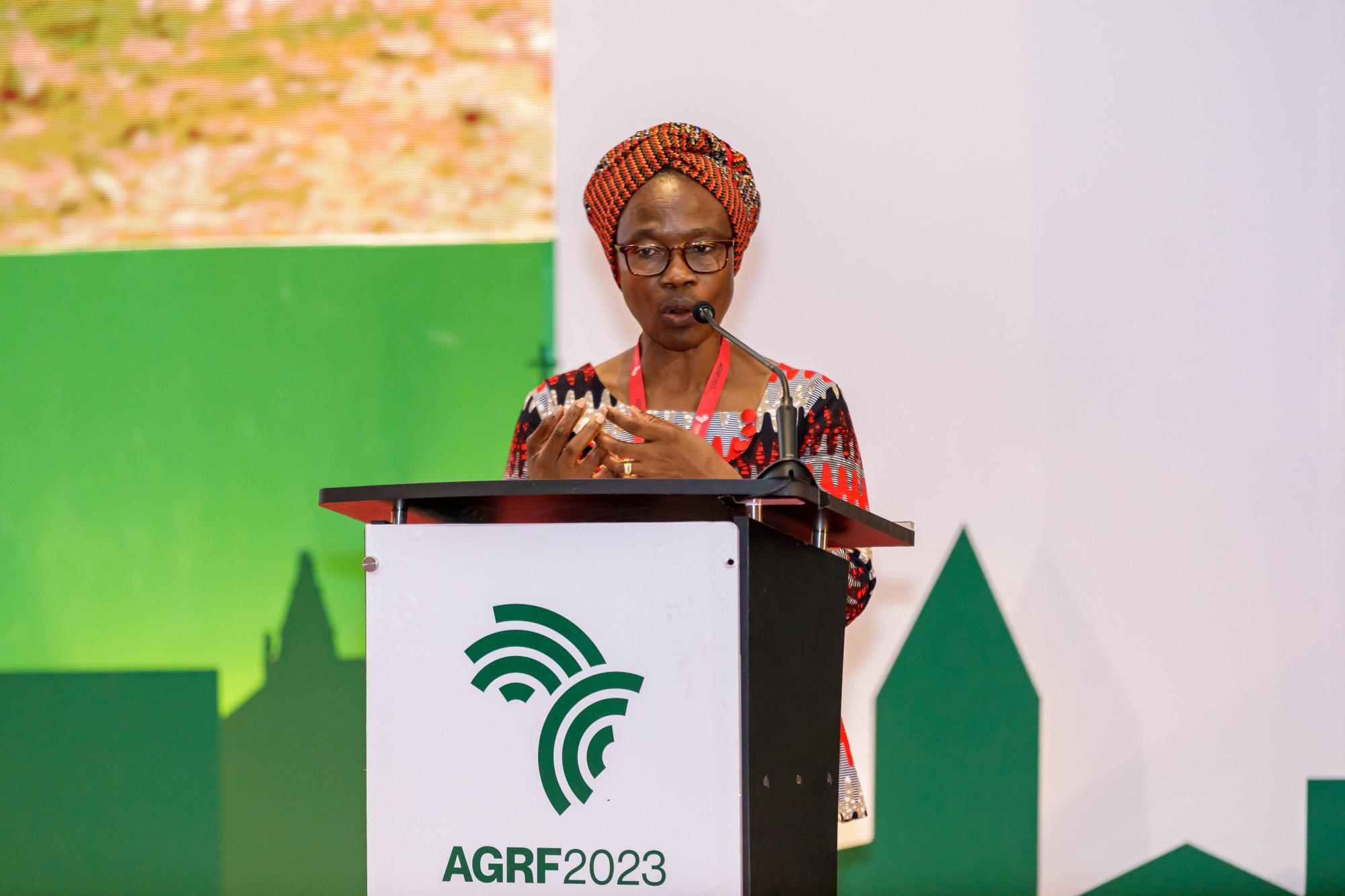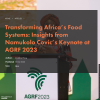
Transforming Africa’s Food Systems: Insights from Namukolo Covic’s Keynote at AGRF 2023
Core message
"There is no time to waste, join us in our journey for greater resilience. Not just for our farmers on this continent, but for our survival." Namukolo Covic, CGIAR Country Convenor and ILRI Director General's Representative to Ethiopia
In the heart of Dar es Salaam, on 6 September 2023, the Africa’s Food Systems Forum (AGRF) 2023 Summit brought together a diverse array of stakeholders from across the continent to deliberate on the theme, 'Recover, Regenerate, Act: Africa's Solutions to Food Systems Transformation.' Among the distinguished speakers was Namukolo Covic, the CGIAR Country Convenor and the International Livestock Research Insititute (ILRI) Director General's Representative to Ethiopia. Her keynote address at the joint Technologies for African Agricultural Transformation (TAAT) programme and CGIAR initiative on Excellence in Agronomy (EiA) breakfast session, ‘A prosperous Africa through resource-efficient farming and seed systems,’ shed light on what is needed to empower African small-scale farmers and equip them with the tools and knowledge needed to transform food systems.
In a continent where agriculture is the backbone of many economies and the livelihoods of millions, partnerships between public and private sector stakeholders like the African Development Bank, TAAT, CGIAR and ILRI are vital for building a prosperous and resilient Africa that can thrive even in the face of a changing climate.
Empowering small-scale producers
Small-scale farmers are central to Africa's food systems and produce up to 70% of the continent's food, yet these individuals bear the brunt of climate change. The CGIAR Resilient Agrifood Systems (RAFS) initiative recognises the challenges faced by small-scale farmers and seeks to empower them through innovative and sustainable agricultural practices and business models.
For example, one of the pressing challenges that African farmers face is low productivity, stemming from issues such as poor-quality seeds, limited access to quality inputs, and inadequate knowledge of modern farming techniques. To address these challenges, RAFS is dedicated to developing and disseminating evidence-based solutions. Access to quality seeds is crucial, and CGIAR collaborates with national research organisations to provide technical assistance and training to farmers.
Adapting to climate change
Climate change is already here and progressing rapidly, impacting farmers negatively year after year. RAFS is working on climate-smart agricultural practices to help farmers mitigate the effects of climate change. These practices draw on indigenous knowledge and are tailored to specific regions to make them practical and effective.
Closing the gap in food systems
Closing the inclusion gap in food systems transformation is a key priority for CGIAR, from finding solutions for underrepresented farming systems to empowering women and youth. Research efforts encompass various levels and diverse environments, from individual crops and fields to entire farming systems and landscapes. This holistic approach aims to address yield gaps and competitiveness hurdles while considering gender and youth-related challenges. Notably, the EiA initiative is customising agronomic solutions for different agroecologies, such as those in Ethiopia.
Data-driven solutions
In the quest for innovation, CGIAR is investing in cutting-edge agronomic data science that is relevant and timely. This approach enables localised, data-driven recommendations tailored to specific localities. Moreover, comprehensive guidelines for evaluating agronomic progress at the smallholder farming level are being developed, ensuring that progress is measurable and impactful.
Collaboration for success
Collaboration is necessary among diverse stakeholders, including farmers, researchers, policymakers and private sector actors. This collaborative approach ensures that innovations and technologies are gender-sensitive and youth-friendly, and it helps shape enabling policies and responses to evolving market dynamics.
Investing in agriculture
While innovative technologies and solutions are essential, they must reach the farmers. This requires investment, and the African Development Bank is playing a pivotal role through funding TAAT. TAAT, established in 2018, is part of the Bank's Feed Africa strategy to enhance productivity and ensure food and nutrition security by scaling up proven agricultural technologies across the African continent. This programme represents a positive symbiotic collaboration between the Bank and CGIAR through EiA, also addressing livestock innovations in mixed farming systems.
The road ahead
In conclusion, Covic urged increased investment in deploying existing innovations and technologies. She stressed the need for continued research to address emerging challenges posed by the dynamic nature of climate change. As she aptly put it, "There is no time to waste." She invited all stakeholders to join the journey towards greater resilience for Africa's farmers, a journey that is not only crucial for their livelihoods but also for the survival of all on the continent.
